WWI – the letters of a Surgeon from the front an outstanding archive of more than 300 autograph letters written in 1917 (with one from 1918) by Ambrose Edgar Woodall FRCS, who rose to be both a Baronet and then Lord Uvedale – and one of the founders of the Trades Union Hospital on Hampstead Hill – a position he held until 1958. The letters have been collated and bound into a single volume bearing a portrait photograph of him on the inside cover. Loosely inserted is a small group of snapshot photographs of him taken at the Front during WWI. A highly important archive of primary source information about WWI from the pen of a working doctor and surgeon who served at the Front in France and Italy. The letters begin with his first entrance into the Army (with a Commission as Captain) with observations on fellow officers (who he doesn’t much approve of) and also of the quality of his fellow doctors, reckoning that only one in 20 are up to the job. On arrival in France he goes to a hospital at Etretat, he discusses the role of the medical professionals both at the hospital and at the casualty clearing stations and also in the trenches, and then describes taking charge of the funeral of a soldier who has died of consumption. He is transferred to the 46th and then the 50th Northumbrian Casualty Clearing Station where he encounters the son of the actor Bransby Williams – a Captain in the BFC for 18 months doing aerial fighting and bombing raids until they found out he was under age. He then describes the shooting down of a British plane killing the observer but the pilot survived : ‘...they were surprised in the air & the plane was riddled with bullets before they were aware of the presence of the enemy. The pilot who escaped was suffering from shock but he had roused himself to attend the funeral of his companion who was also his particular chum. The worst of the Germans is that they are always improving this apparatus – we want to be wide awake to keep pace with them...’ He describes a colleague trying to save the life of his brother by opening a vein to give him an instant blood transfusion only for his brother to die, and then mentions that Lord Alfred Douglas ‘the evil genius of Oscar Wilde’ is now a corporal in the ASC. He attends a lecture on shell shock (a very early example of the recognition of this condition), and discusses hearing the news of the Russian revolution as well as reporting on inoculating German prisoners who don’t look like ‘empire builders’. By April he has about 200 patients – describing them as having the intellectual level of a children of 7. He then moves to be with the Durham Light Infantry and describes a German attack with ‘terrific bombardment’ followed by hand to hand fighting in the trenches and machine gun fire. Then in June he witnesses the German bombardment of a town which ‘is no more fortified than Rochdale’ where he describes bodies in the streets and reports : ‘it is this sort of thing that explains why we are all in the war. The German will profess the highest sentiments – rights of humanity – anything you please if by so doing he can lull you to sleep while he carries out his diabolical cruelties...’ Later in the month he describes the aftermath of the Battle of Messines Ridge commenting: ‘...it is a source of wonder to me how patiently these men bear the most frightful injuries – how calmly they die...’ Note: a brief digest of these letters is available on request.
WWI – the letters of a Surgeon from the front an outstanding archive of more than 300 autograph letters written in 1917 (with one from 1918) by Ambrose Edgar Woodall FRCS, who rose to be both a Baronet and then Lord Uvedale – and one of the founders of the Trades Union Hospital on Hampstead Hill – a position he held until 1958. The letters have been collated and bound into a single volume bearing a portrait photograph of him on the inside cover. Loosely inserted is a small group of snapshot photographs of him taken at the Front during WWI. A highly important archive of primary source information about WWI from the pen of a working doctor and surgeon who served at the Front in France and Italy. The letters begin with his first entrance into the Army (with a Commission as Captain) with observations on fellow officers (who he doesn’t much approve of) and also of the quality of his fellow doctors, reckoning that only one in 20 are up to the job. On arrival in France he goes to a hospital at Etretat, he discusses the role of the medical professionals both at the hospital and at the casualty clearing stations and also in the trenches, and then describes taking charge of the funeral of a soldier who has died of consumption. He is transferred to the 46th and then the 50th Northumbrian Casualty Clearing Station where he encounters the son of the actor Bransby Williams – a Captain in the BFC for 18 months doing aerial fighting and bombing raids until they found out he was under age. He then describes the shooting down of a British plane killing the observer but the pilot survived : ‘...they were surprised in the air & the plane was riddled with bullets before they were aware of the presence of the enemy. The pilot who escaped was suffering from shock but he had roused himself to attend the funeral of his companion who was also his particular chum. The worst of the Germans is that they are always improving this apparatus – we want to be wide awake to keep pace with them...’ He describes a colleague trying to save the life of his brother by opening a vein to give him an instant blood transfusion only for his brother to die, and then mentions that Lord Alfred Douglas ‘the evil genius of Oscar Wilde’ is now a corporal in the ASC. He attends a lecture on shell shock (a very early example of the recognition of this condition), and discusses hearing the news of the Russian revolution as well as reporting on inoculating German prisoners who don’t look like ‘empire builders’. By April he has about 200 patients – describing them as having the intellectual level of a children of 7. He then moves to be with the Durham Light Infantry and describes a German attack with ‘terrific bombardment’ followed by hand to hand fighting in the trenches and machine gun fire. Then in June he witnesses the German bombardment of a town which ‘is no more fortified than Rochdale’ where he describes bodies in the streets and reports : ‘it is this sort of thing that explains why we are all in the war. The German will profess the highest sentiments – rights of humanity – anything you please if by so doing he can lull you to sleep while he carries out his diabolical cruelties...’ Later in the month he describes the aftermath of the Battle of Messines Ridge commenting: ‘...it is a source of wonder to me how patiently these men bear the most frightful injuries – how calmly they die...’ Note: a brief digest of these letters is available on request.


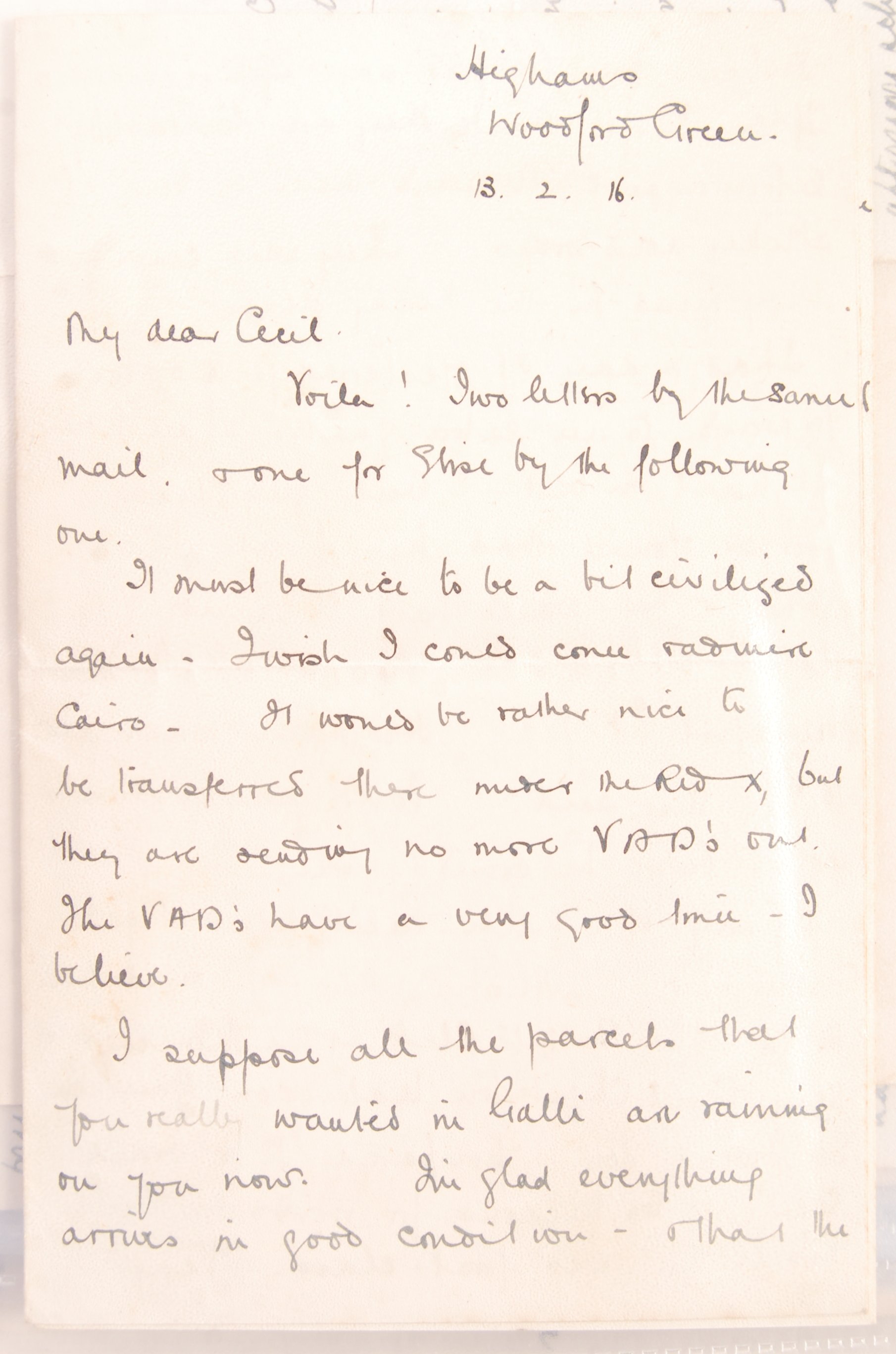
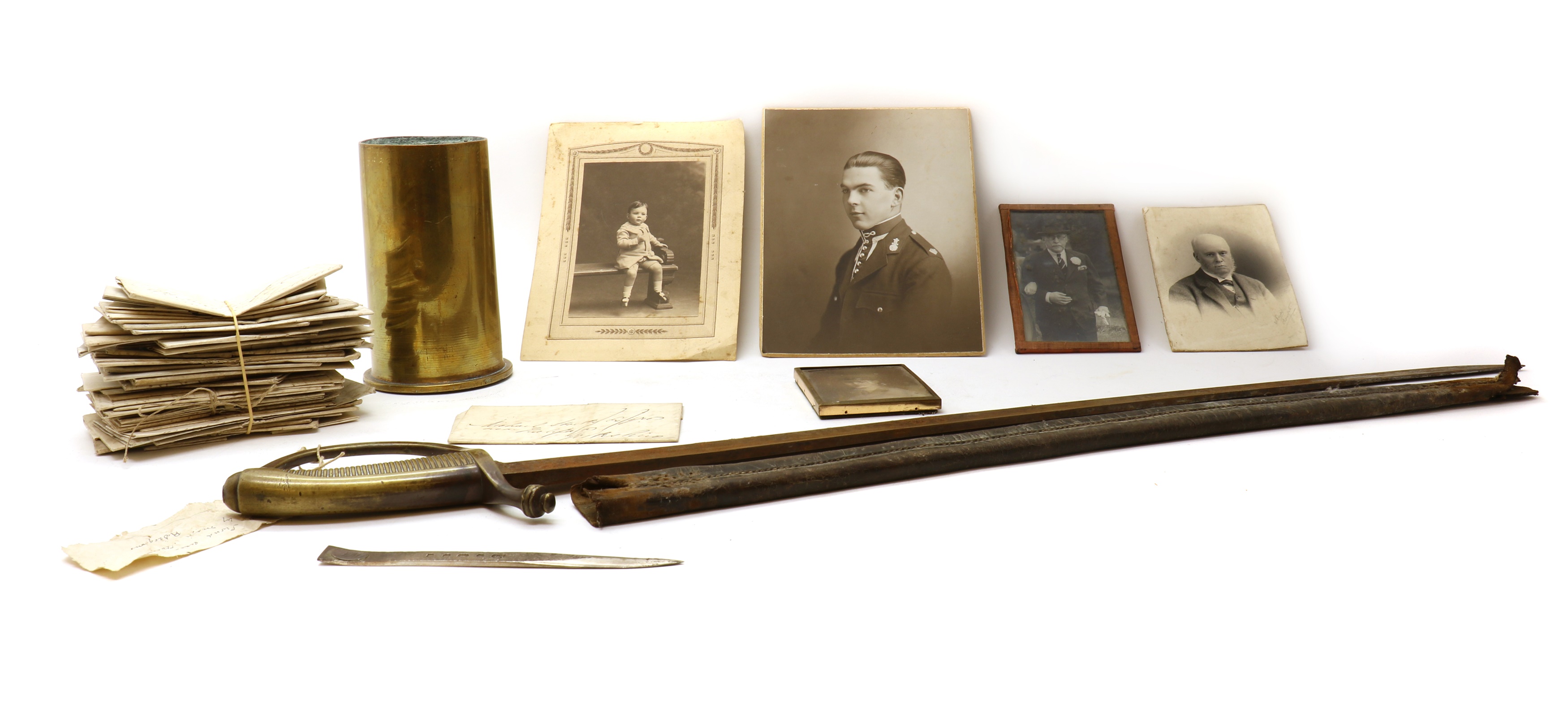
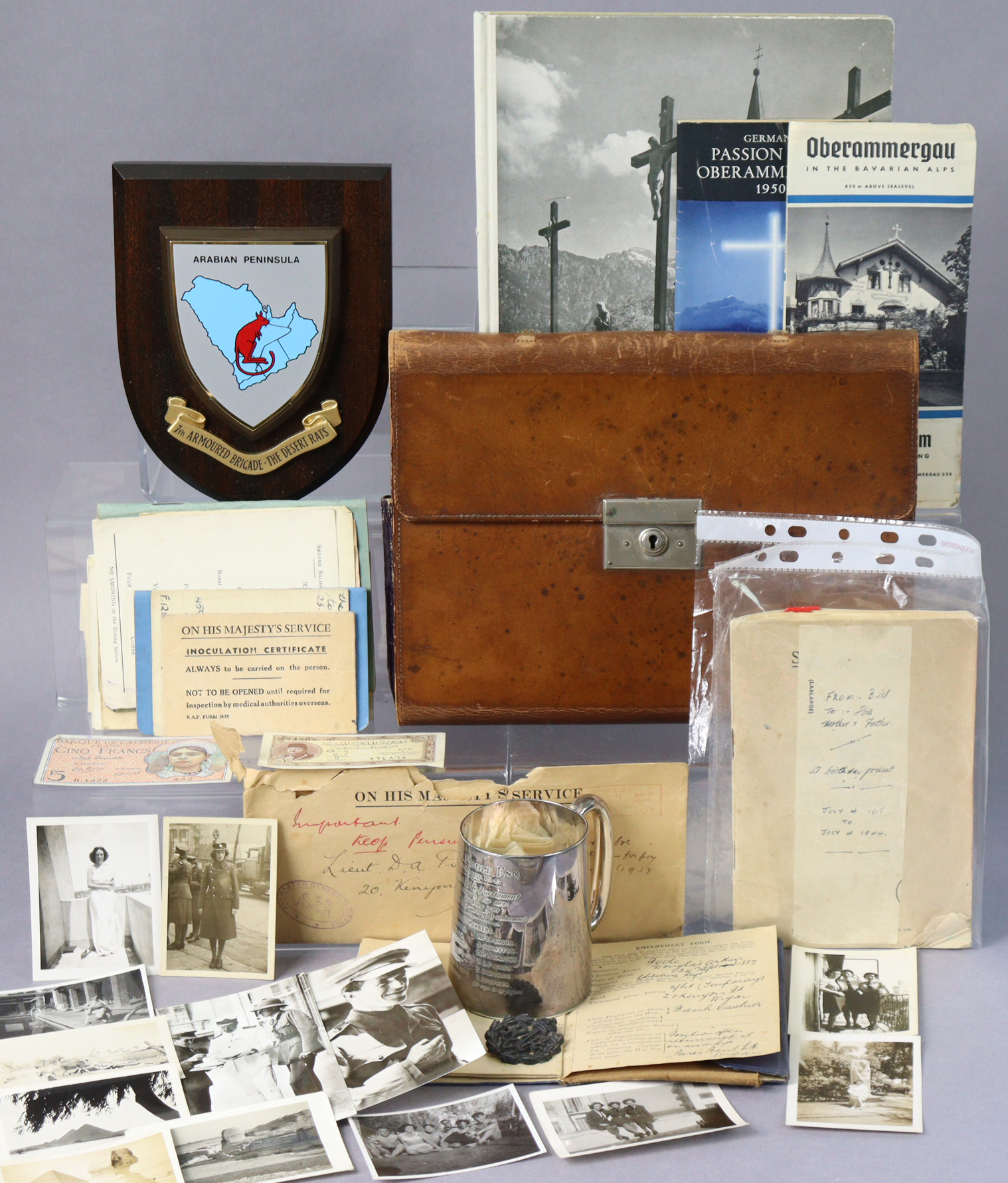

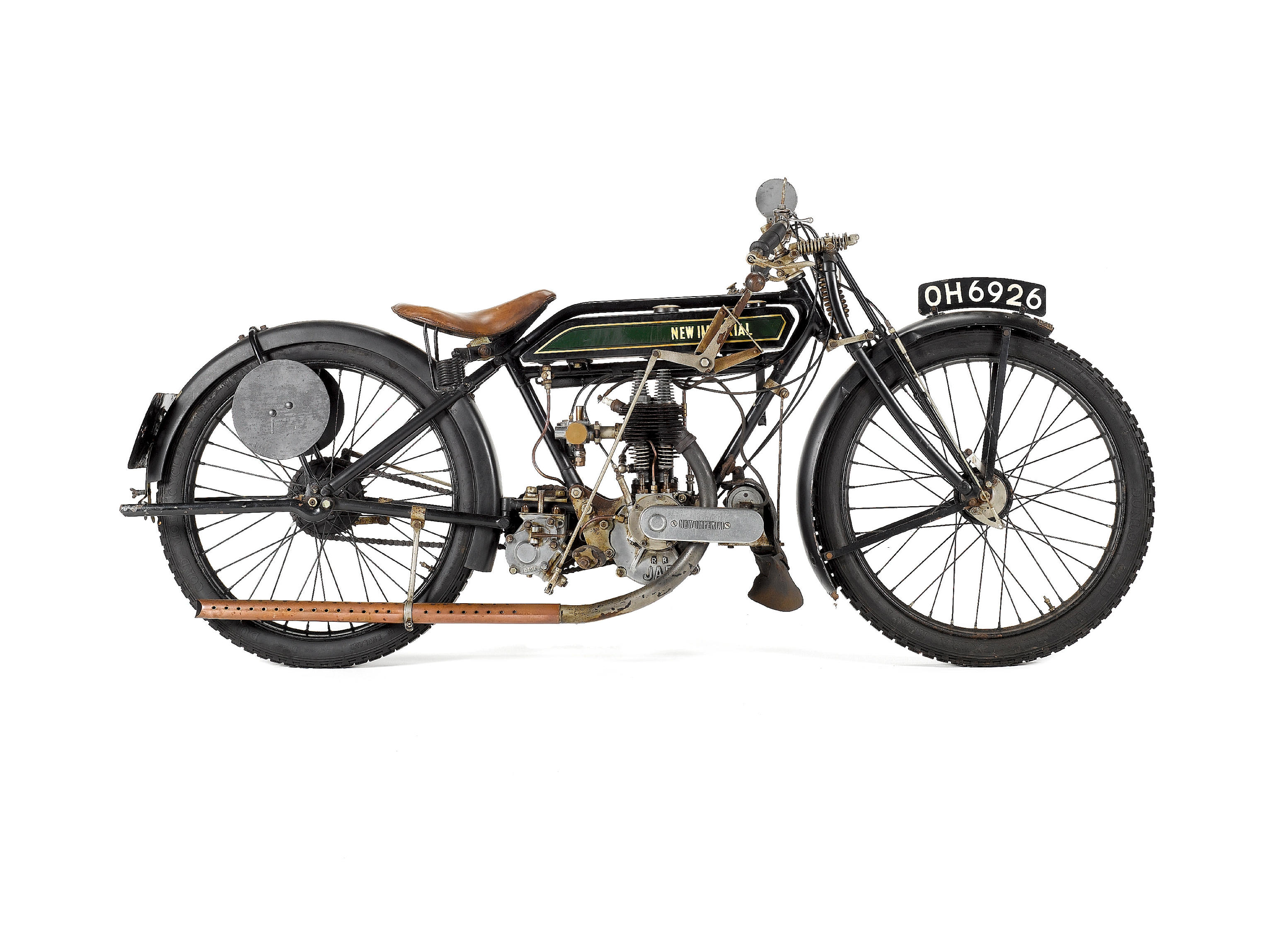


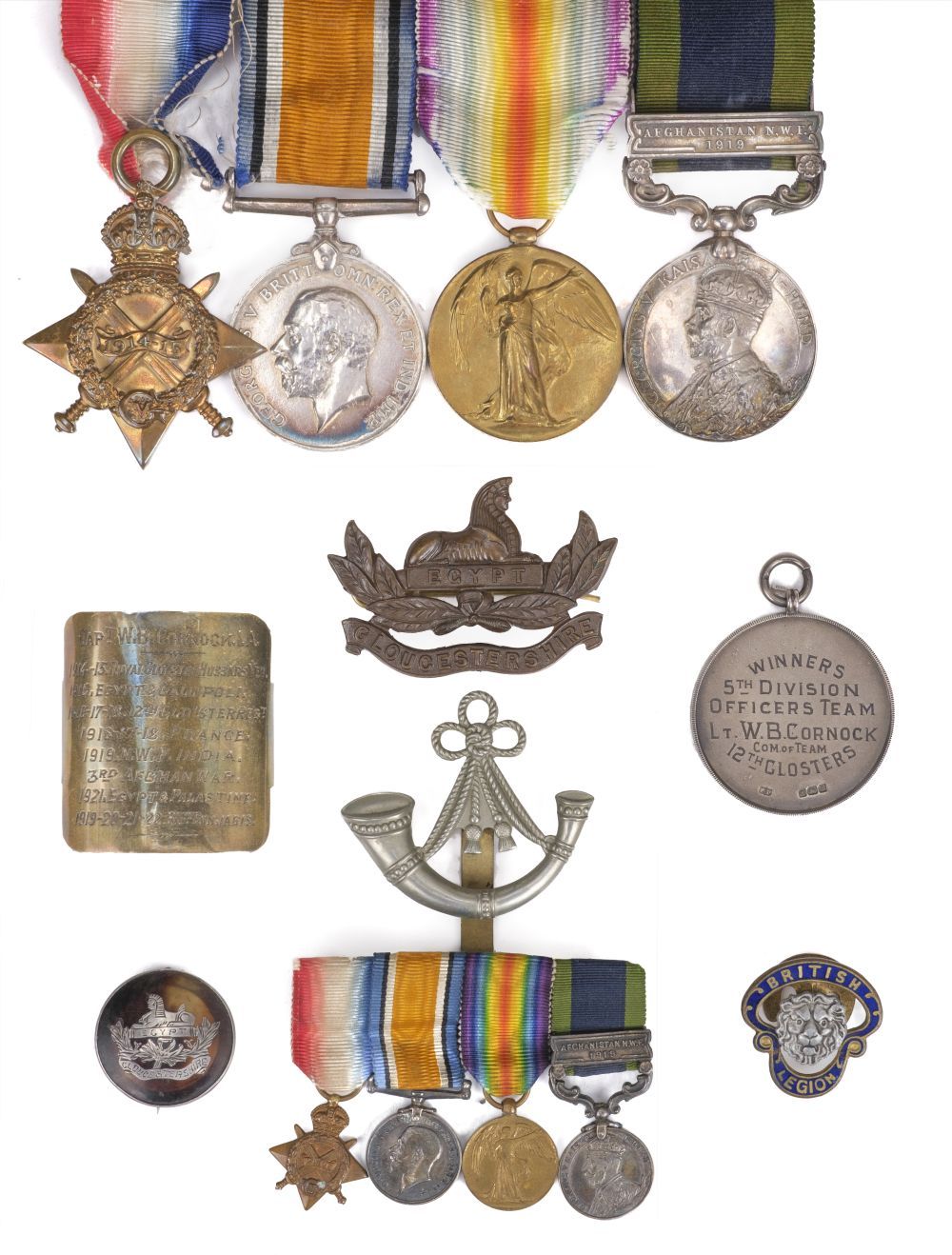


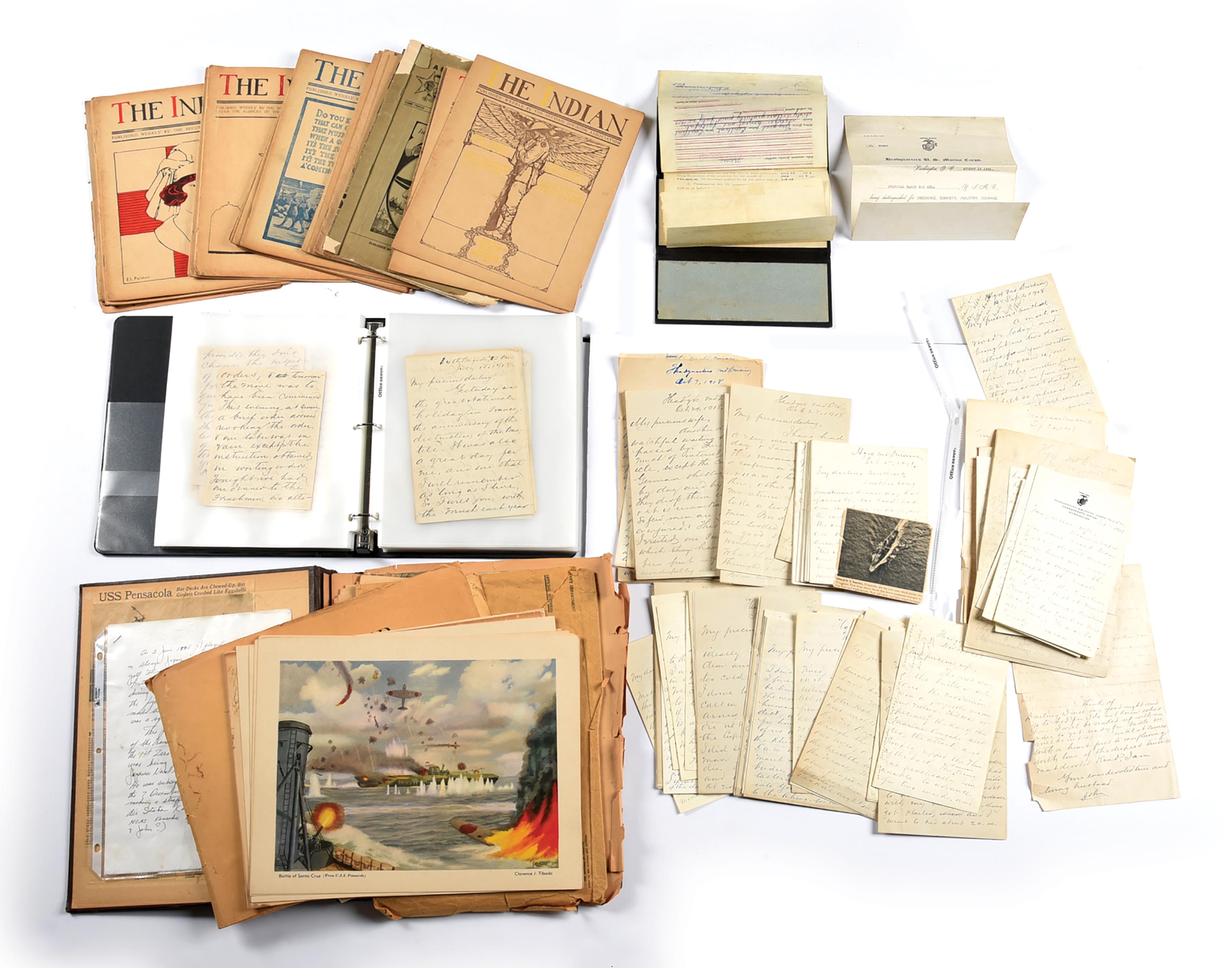

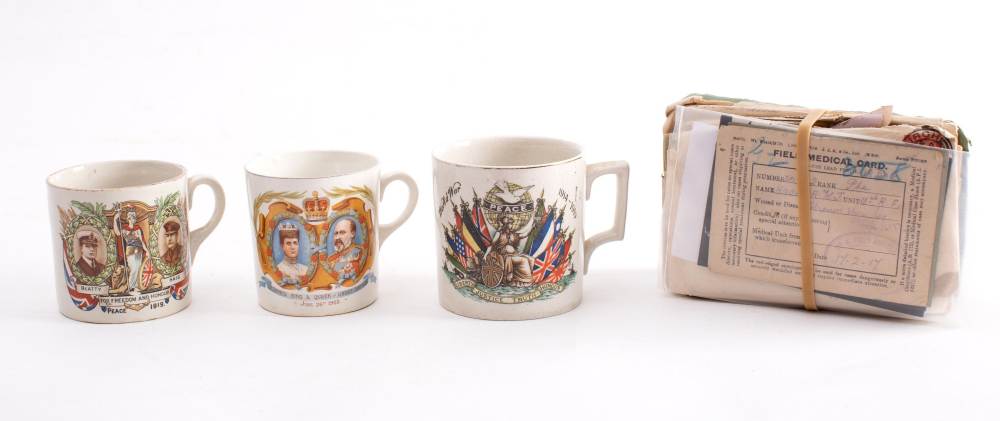
Testen Sie LotSearch und seine Premium-Features 7 Tage - ohne Kosten!
Lassen Sie sich automatisch über neue Objekte in kommenden Auktionen benachrichtigen.
Suchauftrag anlegen